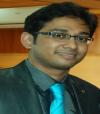Has Obstructive And Central Sleep Apnea With Chest Pressure, Sweating, Fatigue And Stress. EKG Normal. Suggest?

bipap/surgery required contact pulmonologist
Detailed Answer:
Dear XXXXXXX
Thank you for your query.
Sleep Apnoea is a disorder in which the patient temporarily stops breathing while asleep, leading to partial arousal during sleep, as well as decreased oxygen saturation, which predisposes to various conditions like heart attack, stroke, diabetes etc apart from deteriorating the quality of life by causing all the symptoms you already mentioned. It may be Obstructive, meaning a mechanical obstruction to the airway, causing its collapse during sleep for short duration, or it may be central, originating from the brain center which gives command for breathing.
Usually, it is treated with CPAP (continuous positive airway pressure, where pressure is same for both inspiration and expiration) after the level of obstruction determined by doing level I polysomnography. However,CPAP may not work in all cases of sleep apnea. Most importantly, the pressure of CPAP has to be set at a level sufficient to force air through the mask during periods of apnoea. That level may vary with time, and it is usually advised to check with your sleep specialist regularly (at least once a year in most cases) to set the CPAP pressure at the functional level. Moreover, if the pressure required is very high, or there is high variation, then CPAP does not work.
In those cases, BiPAP (bi-level positive airway pressure, where pressure can be set separately for inspiration and expiration) are preferred, which automatically varies the pressure at each breath, sometimes, it may also spontaneously initiate a breath for the patient if he stops breathing.
Some cases, however, may not respond to CPAP or BiPAP, rather may be a good candidate for surgical procedures like resection of soft palate or craniofacial reconstruction. Some may require one or many surgeries, and the type and need of surgery is decided on a case by case basis, if all other non invasive methods(like CPAP, BiPAP etc) fail.
I would suggest you to consult a sleep medicine specialist in your area (who may come from different backgrounds like neurology, psychiatry, ENT, pulmonology, XXXXXXX medicine etc, with a fellowship on sleep medicine) urgently for the diagnosis and management of the same. If you are unable to find a neurologist, you may try for a pulmonologist or a ENT specialist who may guide you or refer you to the appropriate authority.
Hope I've been able to satisfy your query. Please feel to contact me for any further clarification if required.
Best of luck.
Dr. Sourav.
Answered by

Get personalised answers from verified doctor in minutes across 80+ specialties



